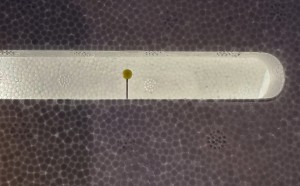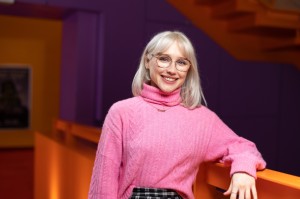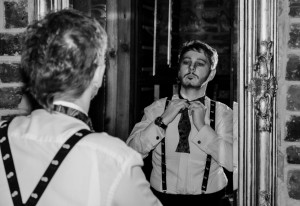Binding Social Fibres: Public – You & Me
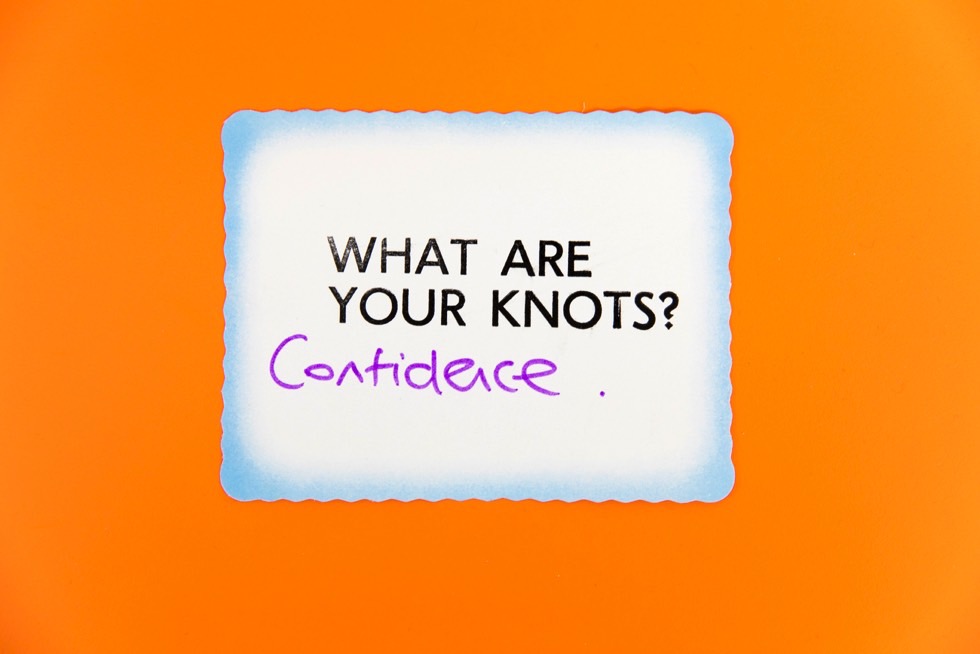
An experimental public programme at AirSpace Gallery in Stoke-on-Trent has Laura Robertson thinking about what programming for and with the public really means…
Strand I: To question (unravel)
Rebecca Davies and Selina Oakes’s multifaceted public programme for AirSpace Gallery in Stoke-on-Trent – Public – You & Me – demonstrates what Boris Groys calls education by infection: teaching art is teaching life. Its deceptively simple and generous set-up – a constellation of free, open door events, which will in turn help shape the gallery’s future exhibitions – is a portal for a complex set of ideas; moored in education, inclusivity, health, activism and usefulness. It is joyful, welcoming. In short, Public – You & Me questions what the gallery can do for its public, and vice versa. What makes it unusual is its artists and contexts.
At first glance, Public – You & Me could be understood as a measure of potential: testing AirSpace’s strength as Stoke’s first and only contemporary visual art space, yes, but also its role as something more ambiguous: what Hans Ulrich Obrist would call a laboratory, or a place of knowledge production. Internationally, galleries are striving for programming that is no longer peripheral to its exhibitions. Rather, educational events (discussions, symposia, classes) for visitors entwined with curatorial production as one, core offer; equivalent to a rope woven from many fibres. In reality, public programming might rub up against the art presented, but is notoriously difficult to interlace. Large institutions have dedicated departments that typically work on the same projects, but disconnectedly, instead of in harmony; rare, too, is the programme that establishes hardy roots in its local communities.
For AirSpace, Davies and Oakes invited artists and designers to share their own modes of cultural production with us; contributing to a carefully considered, month-long series of workshops, performances, group crits, film clubs and socials. Drawing on Céline Condorelli’s vision of ‘making things public’, from her 2014 book The Company She Keeps (whose namefellow, Mary McCarthy’s 1942 novel, charts her protagonist’s life and emotional development), Public – You & Me concerns itself with making with others: strangers, non-artists, friends and ‘friends in action’. Principal questions, learning and action are inherently socially engaged. The results (permanent, like Matt Foster’s Plane Structure CoBuild of chairs, tables, benches and information stands that now enhance the gallery in perpetuity; or more fleeting, such as a screening of Andrew Kötting’s feature-length documentary, Gallivant, 1996) are not the point: the point is to create a shared experience.
This collaboration could be called art education, as the process is certainly a studious one. The teachers – who would probably protest at being called so – are professionals with years of experience in fabrication, publishing, printing, filmmaking and graphic design, and who encourage critical thinking. An integral part of Public – You & Me are the dialogues we have about the teachers’ work – including why they do what they do.
It’s clear that Public – You & Me is a knotting together of makers who utilise collaborative models of working to address social inclusion; from the invited artists, including Phoebe Davies (whose programme contribution, A Soundtrack for Stoke, played locals’ favourite songs, encouraging the sharing of city-based memories and stories) and Kate Owens (whose event Block Print on Fabric (and dance if you want to) had participants stamping on soft furnishings with specially-made, inked shoes, gradually synching their choreography), to those who already reside and work in Stoke, including AirSpace co-director Anna Francis and Public – You & Me curator Davies (who co-run The Portland Inn Project community pub: a living artwork of buoyant karaoke sessions, kids café and classes in ceramics and opera). AirSpace’s regular, critical programme expresses inclusivity through food; Francis’s Artist Soup Kitchen has historically created a space for people to congregate and debate everything from image appropriation to family art activism.
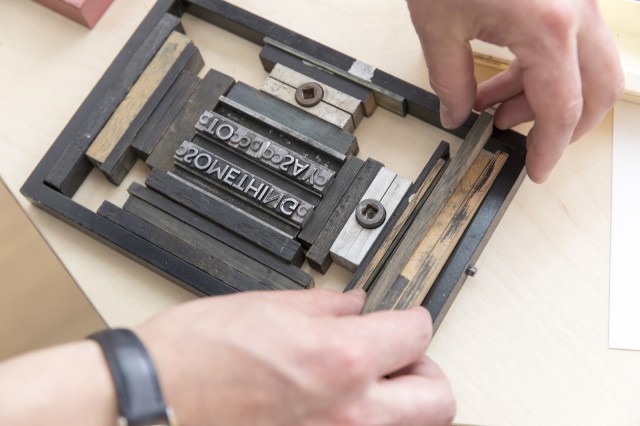
Strand II: To learn/unlearn (twist)
The metal letters (tin and lead) are tricky to pick up and slot into parallel lines. We’ve chosen a gothic typeface, so struggle to identify the alphabet from dark licks and curls. Everyone in the group is sat on chairs built a few weeks ago; each wooden leg bound to the seat with thick, black elastic (hair?) bands.
Three Adana presses are oiled, official-looking – intimidating, but less so after Edwin Pickstone’s demonstration. Typography technician at Glasgow School of Art, he tells us (in no uncertain terms) that we are now overseers of the print resources and will be, in using the equipment, making the facilities easier to use – by being organised, checking everything is working as it should be and (this is important) coming back to teach others.
The workshop is called Celebrations and Declamations; we’re encouraged to write short, memorable political statements. We concentrate on setting our sentences, brows furrowed, before rolling ink over raised surfaces; pressing small cards with each message. One declares: ‘The Revolution Has Compassion’.
Edwin says that he once burned a print-on-demand book, so that he could manufacture ink from the ashes; a method to question artisan and digital production methods. What are we doing, but that?
The learning is troublesome, slippery. It doesn’t stick to a curriculum, nor does it have an Ofsted inspector. It cannot really be measured by matrix or exam. The materials can be misused; the ideas veer off wildly, reconstituted, misinterpreted. A lexicon is distilled from the pop-up library and wall hangings – friendship, solidarity, civic pride, co-operation – in a process of subtle influence.
Sandy finishes early and helps out. Made redundant from a job in social care and youth justice, she says that there is little work for young people in Stoke. The Pits and The Pots, meaning the coalmines and the potteries, have closed, leaving only non-transferable skills; each a key part of the production line but useless without it. One person would roll clay into balls, another would fire-up the kiln. No individual was taught how to create a pot from initial sketch to dinner table. And here we are, studying analogue equipment in order to pass that knowledge on.
In our pockets, we pass fingertips over the scalloped edges of print club loyalty cards.
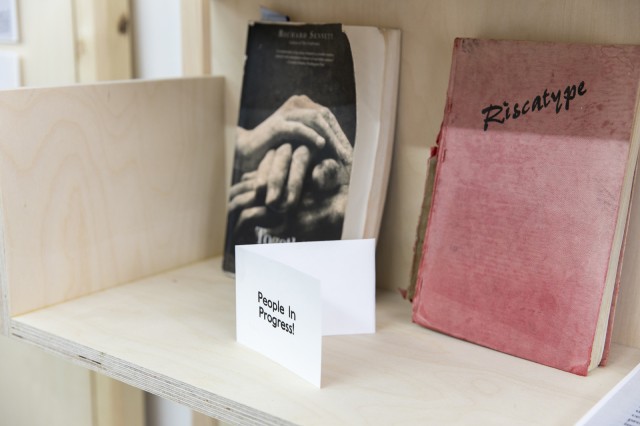
Strand III: To act (bind)
It’s not hard to appreciate the service that AirSpace – as gallery, laboratory, social club, classroom or workspace, or all of these things – offers Stoke. Its residents are at major risk of poverty and financial exclusion (food bank usage has increased by 46% since the introduction of Universal Credit in 2013). There isn’t an abundance of free schemes like Public – You & Me or The Portland Inn Project.
‘Socially engaged’ programming doesn’t have to dominate every exhibition, nor does it have to work miracles – like improve health and wellbeing (although we know that art can, most recently from Aesop’s 2018 Healthcare and The Arts: GP Survey: revealing that two in three doctors believe that ‘public engagement with the arts can make a significant contribution to the prevention agenda’), or become an art school (as Middlesbrough Institute of Modern Art (MIMA) has done this year, teaming up with Teesside University to provide BA and postgraduate qualifications in Fine Art). As a workroom for socially engaged action, AirSpace can do a lot just by opening the doors and making it easy for us to join in.
So, once we’re a part of Public – You & Me, what is to be done? The fibres of our ideas could be teased out, identified, and re-woven as we wished. We could think about our work – our ‘public’ activity or collective action – as we do the Friction Hitch: a knot that can be adjusted, but one that locks in place, from friction, when the load is heavy. As Davies says, we do the best that we can and the most that we can.
If Public – You & Me is a turn towards an educational model that is looser, more experimental, more critical, and perhaps more useful for the future, then we can play. We can build a model of programming in such a way as to increase its length and tensile strength; a united community that will carry the gallery through times of uncertainty (lean years, budget cuts, reduced arts provision, or other trials). We can rename the arena in which we learn and make and talk. We can create a space less exclusive and more open to all sorts of unexpected experiences that expand our friendship circles, confidence, abilities and imagination.
We could each fill in the blanks, writing (re-writing and re-writing) a modern manifesto that makes us more resilient. You & Me might think about what it means to act:
To act means to bind, stamp, dance, listen, speak, watch, draw, carry, choose, pass on, peel back, come back. To act is to __________, to act is to make __________ obsolete.
To act human, we must __________. Everyone should question __________.
We are tired of waiting for __________, and wasting time on __________.
We have never used the medium of __________ to create art, and why not?
Let’s not forget that we have an abundance of __________.
What we think now, here, together, in this moment, means to shake-off long-standing presumptions of __________. We must think carefully about __________.
To act is to invent a new name for art. __________ is art’s new name, and it gives us freedom.
Look round: we can learn to __________, and to unlearn __________.
Public – You & Me looks like __________, and we celebrate it as we continue to shape it in our own image.
If we need to, we screw up this paper and we start again.
Laura Robertson
Laura visited Public – You & Me at AirSpace Gallery in Stoke-on-Trent, June 2019
Images, from top: What are your knots? Adana press print and handwriting; Public — You & Me Library; Something to Say: Celebrations and Declamations workshop with Edwin Pickstone (detail). All for Public – You & Me, AirSpace Gallery, Stoke. Photos by Glen Stoker 2019



